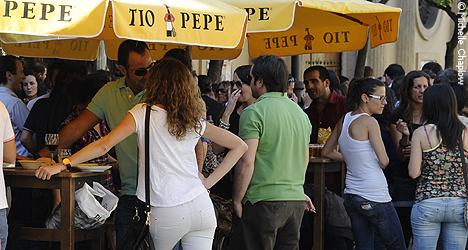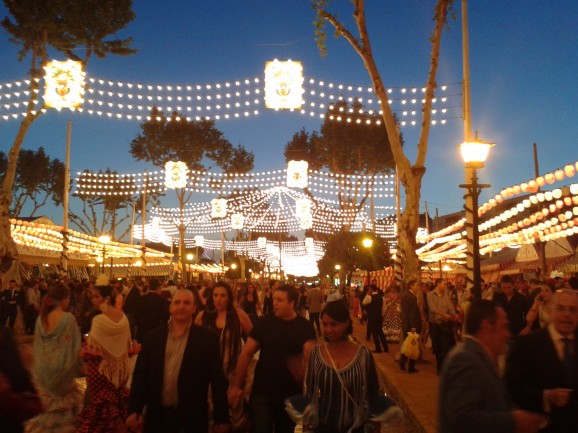
Seville’s New Anti-Noise Law
When you come to beautiful, historic Seville, whether for a brief visit, a medium-length stay, or to live permanently, you will have certain preconceptions about this vibrant city: its atmosphere, its colour, its buzz. In short, its noise.
In the warm, welcoming climate of southern Spain, you expect life to take place en la calle – people sitting outside in cafes eating tapas on balmy evenings, drinking cañas of chilled Cruzcampo beer, and chatting animatedly until the small hours. Having said that, when I lived in the centre, I do remember being kept awake by groups singing in the street.
This street life is what makes Andalucia its charming, inimitable self. Which is why, when I first read about the city's new anti-noise law, I honestly thought it had to be a wind-up. Sevillanos, being told not to make noise outdoors at night? Ain’t gonna happen, not in their culture. But a petition of 4,000 Seville residents last year demanded action be taken against excessive noise in the city centre.
Under the new law, anyone having an "excessively loud" conversation on the street can now be fined, as can bar owners who set up televisions on their terraces or who serve patrons standing up outside. Other activities prohibited include loud music in cars, alarms going off for more than three minutes, or revving engines unnecessarily. Fines could range from €300 to €300,000, and bars risk temporary or permanent closure.

One notable omission is that religious processions and festivals, such as Semana Santa, El Rocio, and the Feria, are exempt from the law, as are karaoke bars and nightclubs. This inconsistency makes a laughing stock of the law. It seems to me there’s a vast difference between a crowded square packed with people shouting, and a few people having tapas at a table. How will the police keep track and decide whom to fine?
What do you think? Should people be banned from eating and drinking while standing up on a bar terrace? Or is this law over-the-top, protecting sleep at the expense of enjoyment?